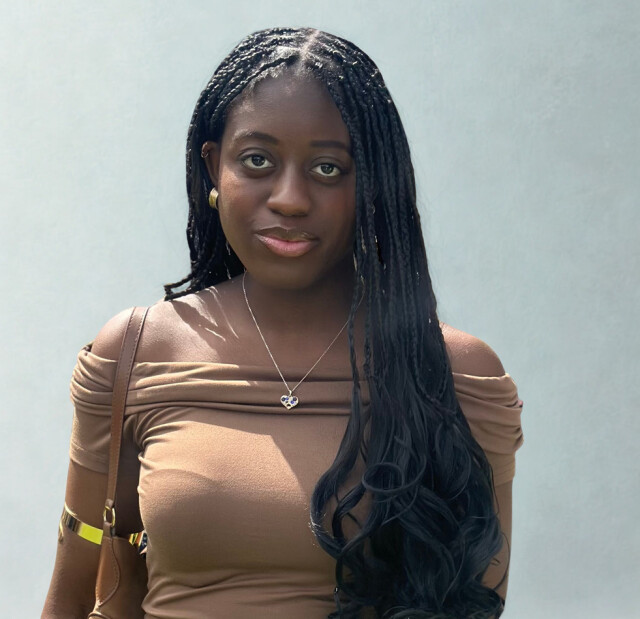

My passion for storytelling sparked my interest in journalism. From publishing my debut book A Letter Away From Asaba to founding Nurtured Magazine at the University of Edinburgh, I aim to make underrepresented histories and voices more accessible.
While studying History and Politics, I gained experience through student journalism and internships. I was Culture Editor at The McGill Daily during my exchange year. While in my final year, I founded Nurtured Magazine, a publication by the Black Women at Edinburgh society that archives the creativity and experiences of Black women at the university. As Editor-In-Chief, I led the team to produce its first issue and interviewed alumni and professors. A highlight was my summer internship with the BBC World Service in London, where I reported on African stories and published a feature on the impact of artificial intelligence on music in Africa.
The Scott Trust Bursary is key to my development as a journalist. It offers support, mentorship, and work experience at The Guardian, which are often difficult to access due to industry barriers.
I am most excited to gain digital and editorial skills, explore reporting areas, and develop my specialism through study at City and placements at The Guardian.
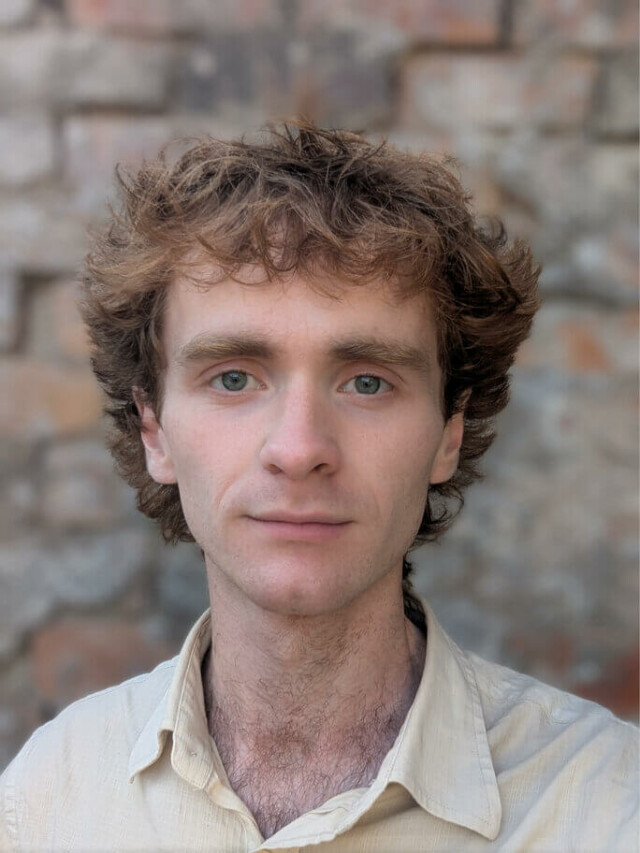
Class-based inequality is an enormously present issue in Britain. Having seen deprivation up close, I'm shaped by the stories of people who feel that the media doesn’t speak for them, and for places forgotten by the mainstream. I want to help serve those on the fringes of modern British society and amplify the stories they have to tell. On a wider scale, I’m fascinated by how wider systems collapse, and I hope to work on stories that touch on multipolarity in geopolitics, the climate crisis, and the decline of empire.
I co-founded STAT Magazine, an alternative art and culture publication based in the North West of England. It was there that I cut my teeth gathering stories for an audience that felt side-lined by national media and cultivating a readership that wanted to hear about small towns overshadowed by Manchester.
It can't be overstated how fundamental the Bursary will be to my career as a journalist. While I've been fortunate to freelance for publications like The Guardian, The Fence and The Big Issue, all my journalistic work done so far has been around my 9-5 job, often late into the night or my days off. Similarly, I would never be able to afford a masters degree without this kind of financial support. For years I've been grasping to grab that first rung on the industry's ladder, and thanks to the Bursary I will be able to fully commit myself to my studies and begin what I hope will be a lifelong career in journalism.
I always have stories rattling around, and I can’t wait to pitch to and stress-test my ideas with seasoned journalists at The Guardian and mentors at Manchester Metropolitan.

In journalism, I find the bridge between culture and my commitment to challenge the underrepresentation we still see across our media, both of which inspired my passion for storytelling.
After graduating from King’s College London last summer, I found my way into journalism by freelancing for arts and culture publications and The Guardian’s Film section. Passionate to bring an intersectional perspective to my work, I wrote stories that interrogate ongoing systemic issues surrounding race and visibility in the creative industries — and that are reflective of my goal to advocate for a more inclusive news media.
I then became curious about how stories came together in a newsroom, which I’m now gaining experience in as an Editorial Intern at the Financial Times. This summer I’ve had an incredible experience working on FT Weekend; developing skills in long form print journalism, writing a weekly photography column and supporting editorial teams across the Life & Arts desks.
But coming from a working-class background, envisioning journalism as a long-term career never felt realistic, having struggled with the barriers that too often limit who gets to see this path as viable. Receiving the Scott Trust Bursary is the lifeline that will make all the difference; its support means that the voices of aspirants from backgrounds like myself won’t be silenced by our circumstances.
At Goldsmiths I look forward to well-rounded training where I’ll grow in areas of journalism I’m yet to explore, including news writing and multimedia. I’m excited to bring all I learn during my MA to the different desks across The Guardian’s newsroom, which will provide both the practical experience and confidence to become the journalist I aspire to be.
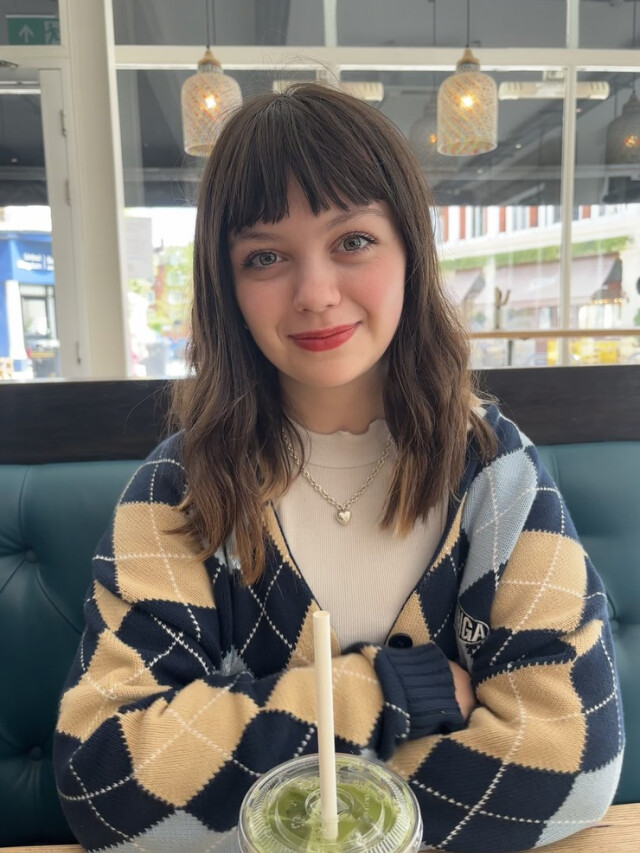
When I was little the only way my parents and grandparents could keep me quiet was by giving me things to read. By the age of three, I had my nose in the news headlines while my grandad read the sports pages. Reading stories the newspapers deemed “newsworthy” has therefore been part of my daily experience for as long as I can remember, but the stories I read as a child didn’t always feel representative of my upbringing or community. I want my own journalism to change that, not just for kids like me who grew up in social housing, but for any demographic neglected by the media.
My involvement in student media bolstered my passion for writing and researching. As Deputy Editor at my student publication, I established and produced our podcast; I also reached out to communities I felt were less represented in our reporting, such as neurodiverse performers and local artists.
Receiving the Scott Trust Bursary is a gamechanger for me. I was the first person in my family to attend university, so the fact that I’ll be doing a masters, particularly in the field I have always dreamed of a career in, is unbelievable. The bursary not only offers the stability necessary to fully devote myself to my degree, but it unlocks a whole network of individuals who are knowledgeable and passionate about journalism. I can’t wait to learn from them as I continue to grow as a journalist.
I’m most excited about getting to experience life in the Guardian newsroom, and I’m especially looking forward to rotating desks and diversifying my portfolio.
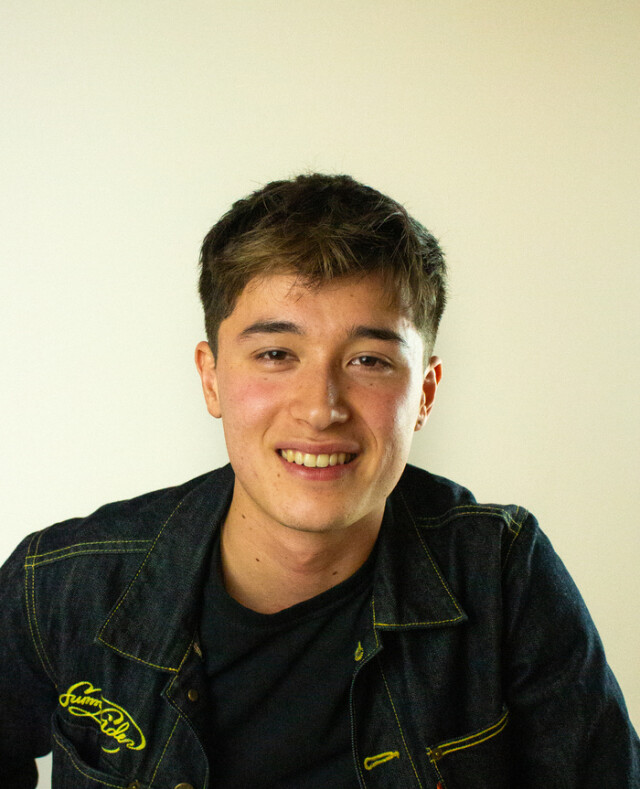
Growing up, I devoured news, constantly racing through newspapers and magazines to find stories, characters, and opinions that could connect me to a wider world.
Whilst at university in Bristol, I discovered the thrill of writing my own stories as I met and interviewed people from all areas of the city. Alongside writing articles, I also developed skills in multimedia reporting, experimenting with photojournalism, documentary filmmaking, and short-form social news content.
Since graduating, I have been working in Tokyo, contributing features for Yokogao Magazine, working on a documentary with Peleja Media, and interning at Metropolis Magazine. These experiences have been deeply rewarding, teaching me how to apply my journalistic skill set to a new cultural context.
Receiving the Scott Trust Bursary is a pivotal moment in my early career. The support from the Guardian Foundation will allow me to fully focus on developing technical skills during my MA, while also gaining invaluable practical experience through placements at The Guardian. I’m especially looking forward to building on my multimedia foundation at Leeds Trinity and experimenting with new storytelling mediums like podcasting.
Overall, I am excited to take a significant step in pursuing a career that rewards curiosity, exposes me to different perspectives and allows me to keep asking questions.
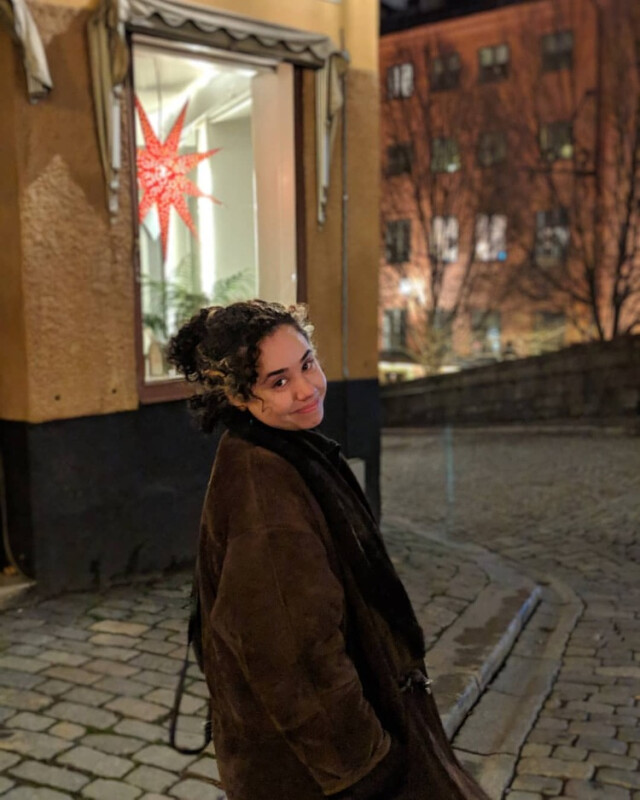
I have danced around a career in journalism for the last nine years, pursued a career in communications for a range of left wing organisations & became a go-to point of contact for journalists. Foremost, I have spent my career thus far saying a lot for others and I value the power that journalism can wield and believe that it is the most direct mode of communication that I have not yet pursued.
It’s not the case that I have abandoned the liberation politics of organisations that I have previously strategised the communications of, or that cause-based work is no longer my passion, I am still passionate about communication, but that I am now certain I can be more effective in a profession wherein I am not confined to a single area of work and where I can be guiding architect of the narrative of my message.
The desire to develop my career in the media has been drawn from seeing the importance of effective communication to challenge the status quo. I hope to provide a class based analysis to data journalism in future.
I’ve seen the impact of people like those referenced and respected data journalist, Mona Chalabi and I think we need a variety of people doing that. I am well placed to do that considering my history of illustration, art direction and politics.
I want to continue to communicate in a creative way that makes the kind of statistics that can be impenetrable and jargonistic accessible. I want to bring a class-based analysis to cultural critique, something which I see lacking from the majority of media publications. In our discourse there is a pejorative rhetoric about snobby experts that surfaces when class is mentioned as a vital point of departure from which culture (both ‘low’ & ‘high’) is encoded. Good journalism illuminates and I want to provide critiques that encourage people to take a look at culture through a critical lens. Cultural theorists such as Stuart Hall and Slavoj Zizek have influenced my views on hegemony within power/institutions and popular culture and in my view this is immensely useful in informing our perception of the art and media that surrounds us.
I’m most excited to develop my skillset in a way I never have before and meet people who can help me do that!